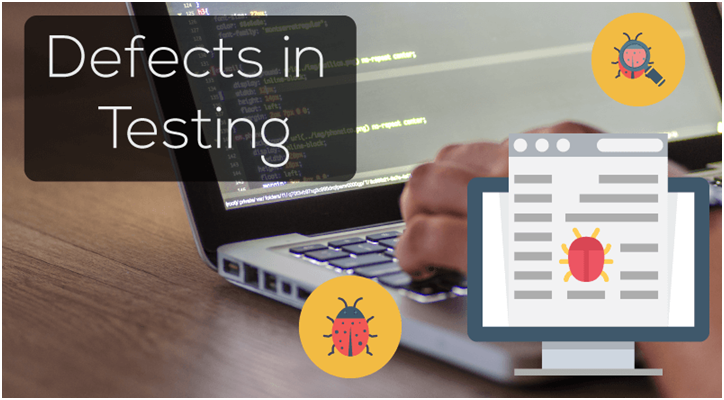A lot of discussions about the testing needs, tools & techniques to facilitate software testing needs remain at the forefront in conversations between quality assurance & software quality testing enthusiasts. Myths surrounding software testing get busted and facts surface. But the discussions do not evidently end at the process of testing itself as niche techniques of software testing like crowdsource testing become popular to adapt to the changes in technology.
Management & streamlining of test data is more than important and test data management remains a critical component in the testing life cycle for software & apps.
Test data management or TDM, facilitates test data during various phases of a software development life cycle. The data consumed, tested & modified is constantly put to use during the complete software cycle.
- Analysis
- Development
- Testing
- Maintenance
The evolution of Test Data Management into a comprehensive service ensures that the need for relevant data during various phases of the software life cycles are taken care of pushing faster go-market times.
The Importance of Managing Test Data
- Relevant test data improves the reliability & quality of software quality testing
- Frequent changes in business policies require a re-look at the context of the data
- Test data need constant refreshes to assure accuracy in testing
- Versions of the test data sets are of great importance in providing appropriate insights for testing during different phases of the software development
TDM – The Growing Importance
Challenges for Test Data Management
Enterprises need to adapt to the needs of the multi-channel market forcing the technology & software needs to change periodically. Sustainable software support delivered to the enterprise means a dynamic approach to keeping the software fool-proof at all times.
Test data to be generated and maintained during creation, updating & revisions of software face diverse challenges to remain dynamic & keep up pace with the agile testing methodologies.
- Improper analysis of data requirements due to insufficient study at the onset of apps & projects
- Frequent changes in the test data because of changes in the scope of the work undertaken
- Unexpected test data requirements during the project lifecycle
- Loading production data into the test environment
- Ensuring data privacy & confidentiality by masking production data
- Adhering to regulatory compliances for all data
- Keeping version control mechanisms of data in place
- Provisioning back-ups to prevent loss of test data
- Preventing test data redundancy across integrated projects
- Synchronization between teams
- Application development
- Testing & QA
- Infrastructure
- Database facilitators
The TDM Lifecycle
Test Data Management cycle is a well thought of and integrated approach for software quality assurance.
Test Data Profiling
An enterprise solution comprises of a variety of user interfaces & communication channels. The data captured & represented for each are quite different.
Enterprise business needs should be mapped to data structures and test data requirements are identified based on these. Test data profiling ensures sync between application needs across the departments in an enterprise.
Test Data Planning
Planning for TDM focuses on enabling the testing teams to understand the intricacies of the production scenario to evaluate the kind of test cases are to be expected there. A test data strategy is created in accordance with and tools supporting these requirements are identified.
Test Data Provisioning
Subsetting Data from multiple sources
Subsetting identifies realistic data to be used for conducting tests, encompassing as many scenarios & combinations as possible from distributed data landscapes.
These subsets are practically small and allow quick testing in an environment as close as possible to production data.
Automated subsetting also enforces boundary conditions & error possibilities
Keeping the Data private
Data masking hides the actual data related to customers, enterprises or businesses, but retains the flavor of reality. Industry-specific regulatory compliances are adhered to making the test data private & safe by bringing in anonymity into the data.
Test Data Population
Automated Test Data Generation & Comparison
Test data is used in consecutive test runs when compared with the baselines continuously using automated tools increases the ability to narrow down on undetected issues with the data intended to be used for software quality testing.
Besides keeping the anomalies & inconsistencies of test data under check, automated test data generated for repetitive tasks increases the speed & efficiencies of testing.
Periodic Refresh of Test Data
Testing efficiencies are improved by monitoring test data to get away with any divergences in the test data. Periodic refreshes ensure optimal testing environments for testing support.
Rules of Thumb to Manage the Test Data Environment
The Test Data Environment needs to be created with an aim to support the needs of test data management.
- Keep it as similar as possible to the end-user environment
- Address the practical needs of the times like creating an environment to test on a variety of devices & their platforms
- Explore practical platforms like Virtualization or Cloud environment
- The test data environment should be easily configurable and be able to be cloned to offer diverse testing scenarios.
Yes or No for Test Data Management
Saying ‘Yes’ or saying ‘No’ to Test Data Management offer contrasting outcomes. It is for the enterprises and testing partners to identify an appropriate test data management strategy for reputable software, project executions & apps.
Infographic
In a Nutshell
With newer technologies and approaches emerge changes in techniques of testing & the data sufficient to conduct these tests. Test data management becomes more relevant than ever today.
An appropriate and prudent test strategy is the call of the day today with a competent test data strategy. Keeping in mind the various trends for testing in 2016, SPEC QA software quality testing & QA Services ensure the right mix of traditional and modern Testing approaches with appropriate Test Data Management to achieve smoother implementations with near-zero post-delivery defects and higher customer satisfaction.









